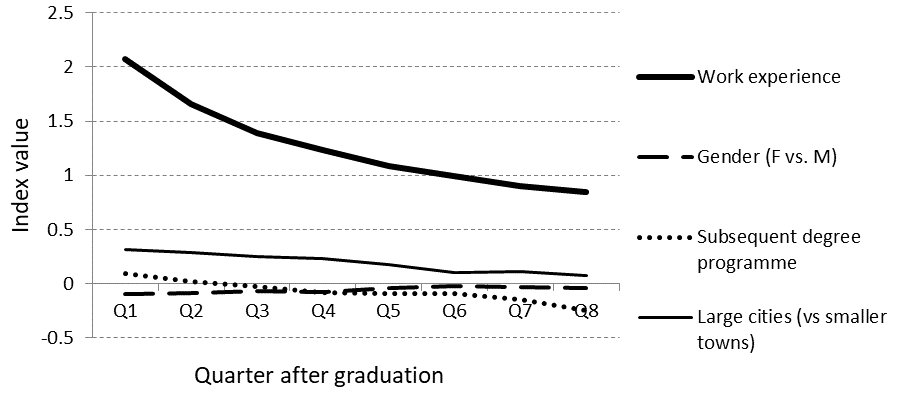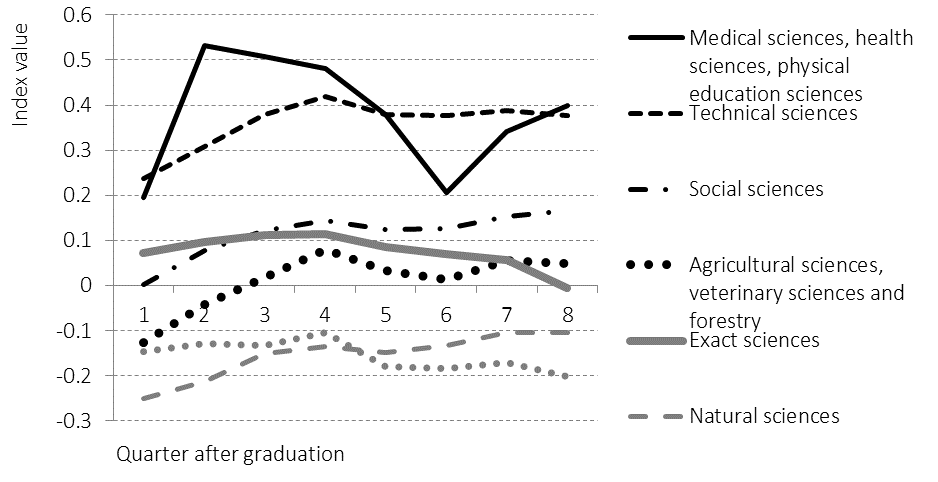
People who worked during their university years stand a better chance of finding hired employment or becoming self-employed after graduation, especially shortly after graduation. Over time, the experience of combining work with studies becomes less important for employers. Employability is further enhanced for graduates in technical fields, medical sciences and health sciences. Features such as gender, age or the size of home town do not play a major role.
These conclusions can be drawn from a study of factors affecting the employability of graduates, conducted on the basis of data generated from the nationwide system for monitoring the Economic Trajectories of Graduates of higher education institutions (Polish acronym: ELA). The system is available at: ela.nauka.gov.pl.


The ELA system is known primarily from reports describing the lives of graduates on the labour market. However, the data stored in ELA enable much more sophisticated analyses. One example is the aforementioned study of factors influencing employability of graduates, published (in English) in the magazine entitled Edukacja [1]. The authors of the article used data from the second edition of ELA and analysed the change of employability of graduates over time (within eight quarters after graduation). The analysis took account of factors such as graduates’ gender, age and place of residence, as well as the field of study, further education and employment before graduation. The results are shown in the figures above.
[1]: Jasiński M., Bożykowski M., Chłoń-Domińczak A., Zając T., Żółtak M. (2017). Who gets a job after graduation? Factors affecting the early career employment chances of higher education graduates in Poland, “Edukacja” 4, pp. 17–30.